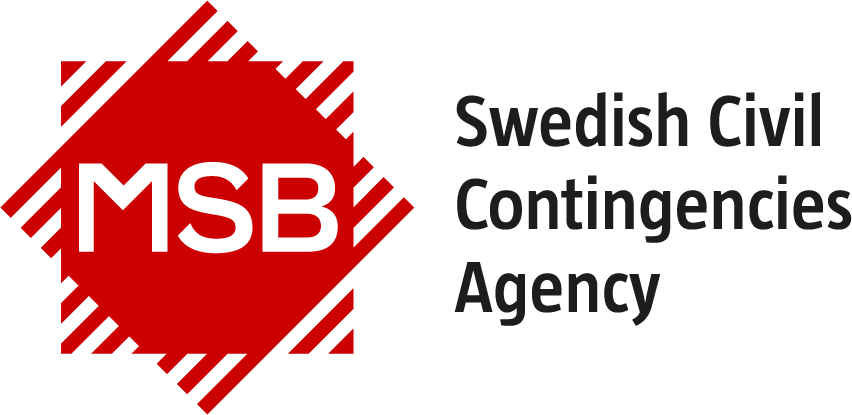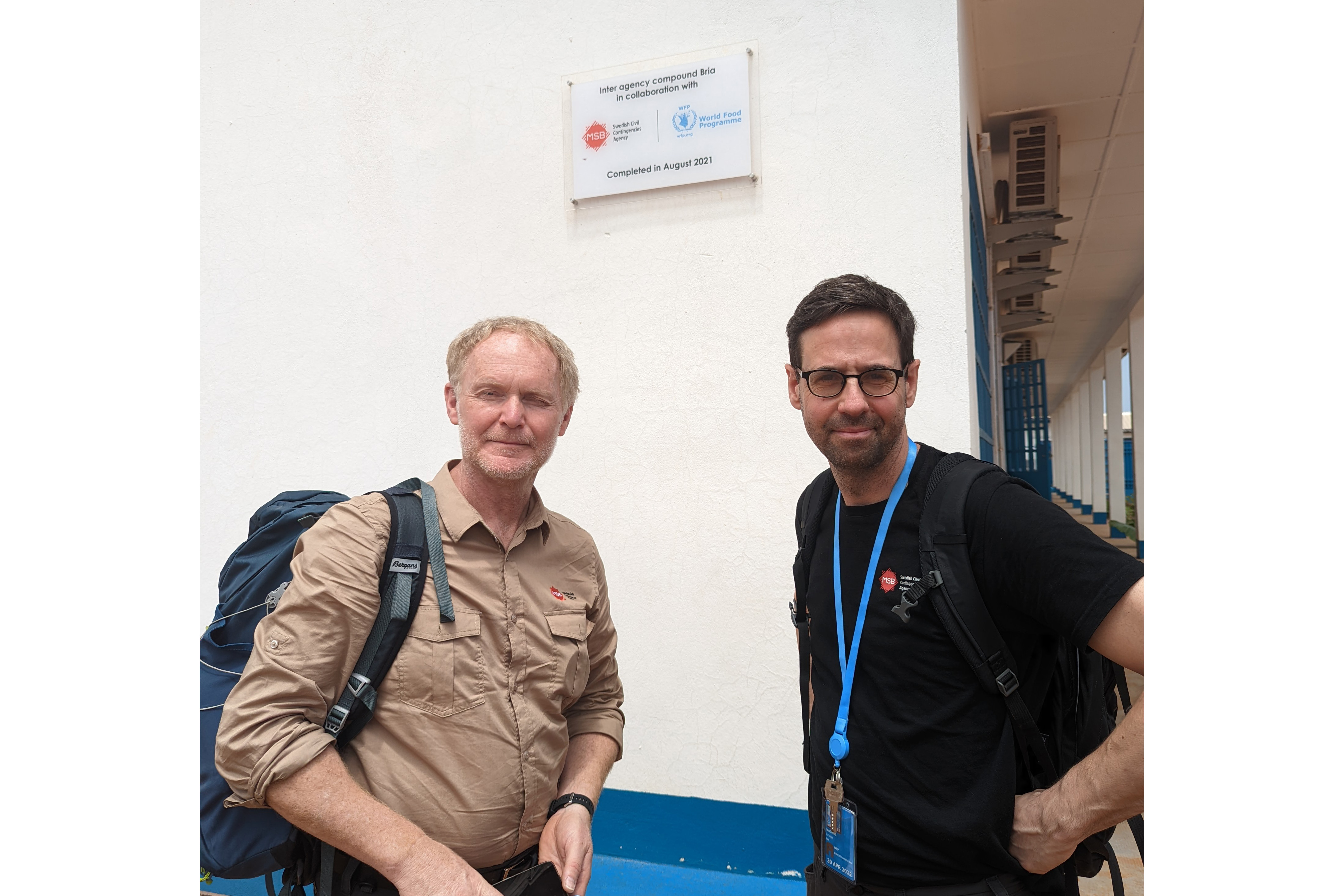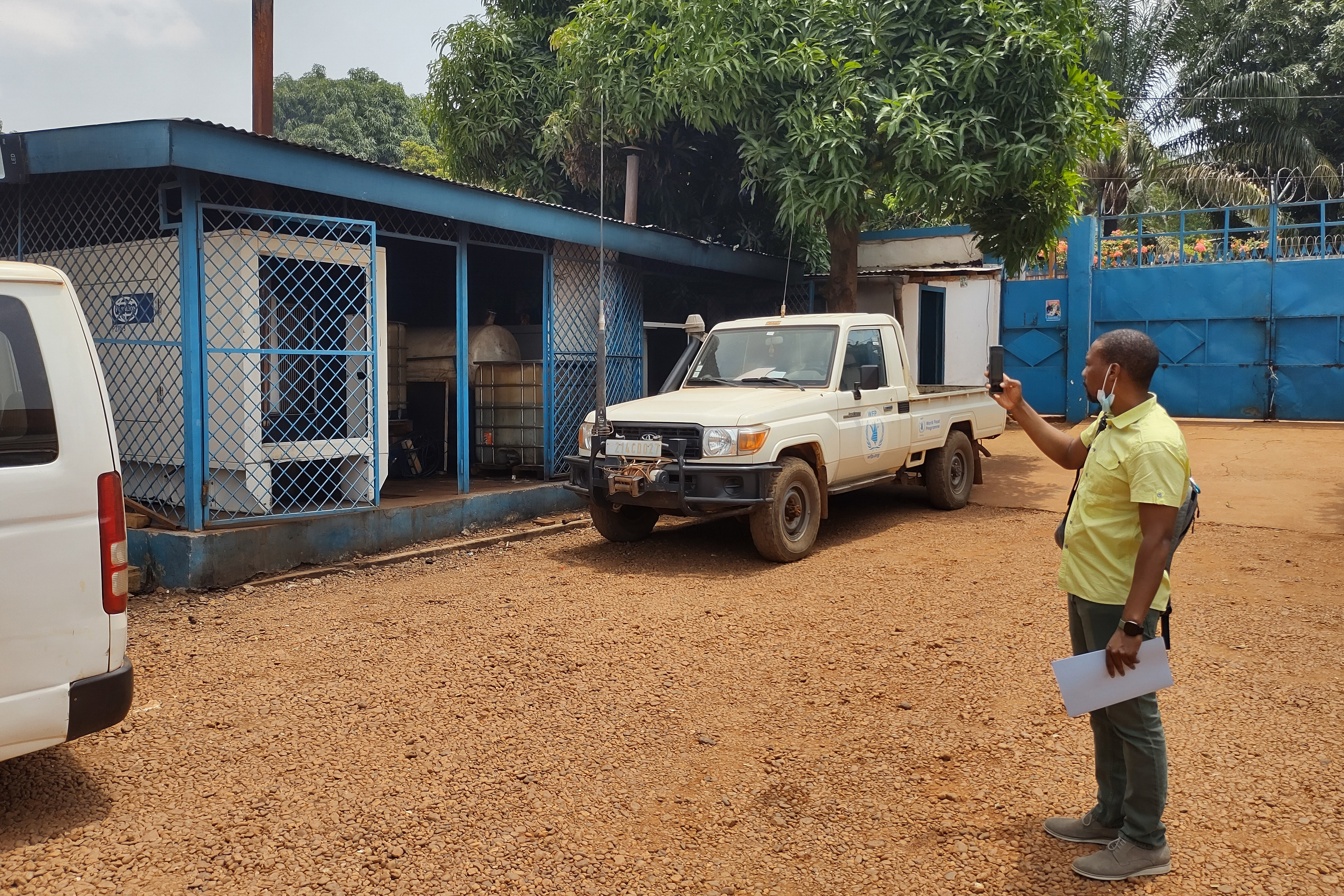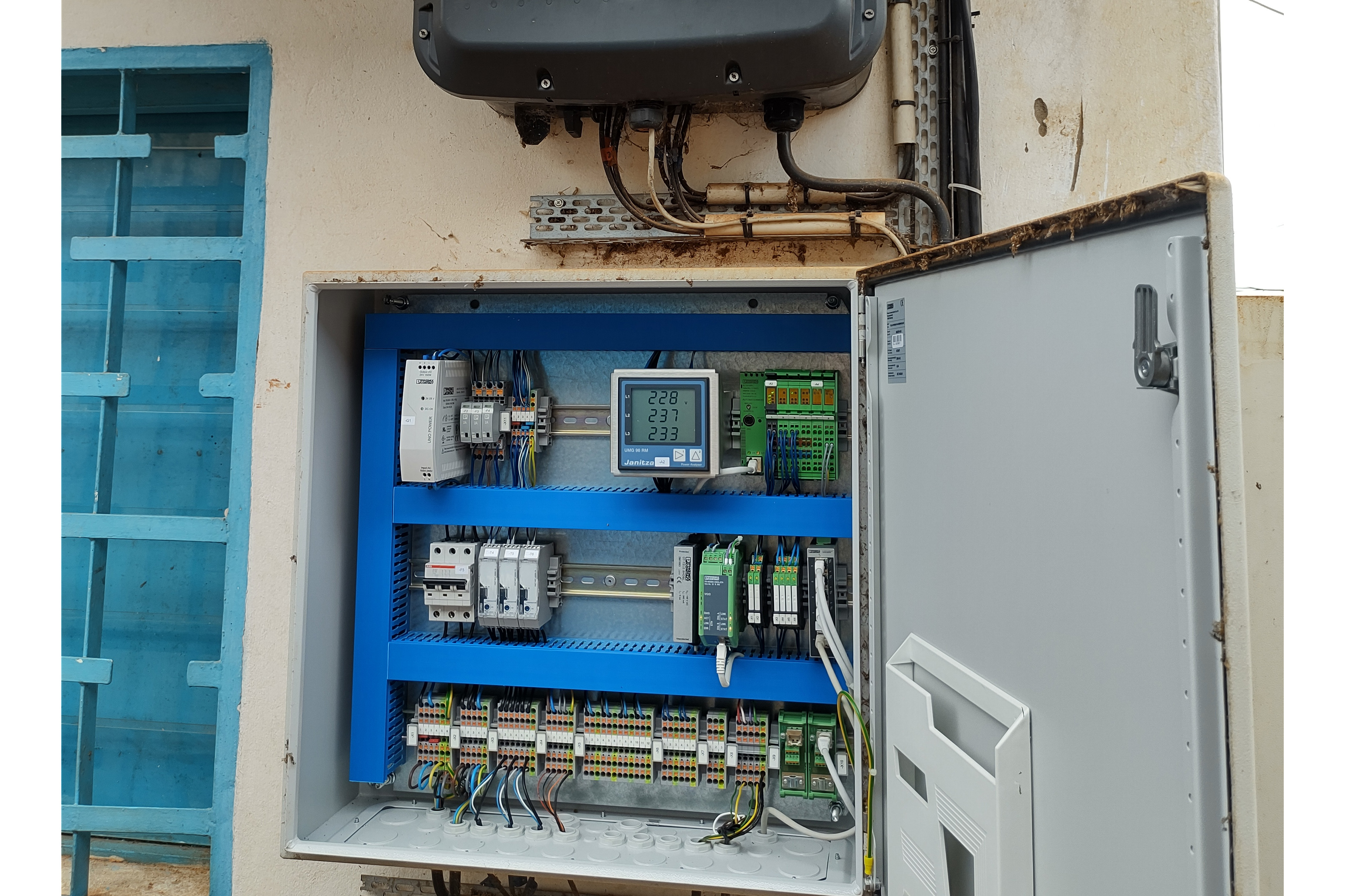Mr. Per-Erik Eriksson takes us to 12 countries in 11 months
12 countries in 11 months – 26 degrees on air conditioners and a solar energy revolution coming up.
Per-Erik and Magnus at the new WFP base in Bria CAR
When I first reviewed the Terms of Reference for the mission as seconded Environmental Sustainability Expert to WFP’s regional office for West Africa in Dakar (RBD), it looked almost daunting.
As a team of two – myself and the newly arrived Regional Environmental Advisor, Amadou Cissé – we were supposed to implement WFP’s new Environmental Management System (EMS) in the 19 Country Offices making up the region.
The purpose of the EMS is to systematically identify, avoid and manage the most significant impacts of our operations. In addition to that, our task was to improve the environmental sustainability of the new common UN House in Dakar – a massive office complex with 2000 workplaces under construction just outside the city. The contract was for 6 months.
Naturally, no-one expected us to be able to conduct EMS implementation missions in all 19 countries within that timeframe. The objective for 2022 had just been set at 7 countries when I arrived in Dakar in March. Now, when the time has come for summarising what we did within the timeframe of my extended contract (extended to a total of 10 months), we can proudly say that we exceeded the objective by far. With the last mission to Burkina Faso in January 2023, we have completed the EMS implementation in no less than 12 of the 19 countries. And since we concentrated on the countries with the biggest operations, we have covered 87 % of the RBD total staff.
We started out already in March with a mission to the Central African Republic (CAR) to be able to meet up with my MSB colleague Magnus Lindsjö, who was there working with WFP’s waste management. We summed up our findings in an EMS Action Plan where we highlighted the importance of improving energy efficiency and taking further steps in converting from diesel generators to solar power. We also gave recommendations for waste and water management based on Magnus’ and our own findings – and we started our extensive staff training work. One of the major components in the trainings we have given to around 1500 staff since then has been on the handling of air conditioners – the major energy consumers in our facilities (75-90% of consumption); To set the temperature at 26 degrees and never leave an air conditioner running if a door or window is open or if you’re the last to leave a room, has been the mantra in all communications and training.
Next up was Nigeria. The Country Office warmly welcomed assistance, particularly on converting from diesel generators to solar power. We concentrated on necessary energy efficiency improvements and on mapping the energy consumption for all facilities, drafting preliminary solar power system designs. Based on this, we assisted the Country Office in applying for funds from the WFP Energy Efficiency Programme (EEP) and loans from the WFP Capital Budgeting Facility (CBF) for a total of 6 major solar power systems with a combined PV power of 600 kWp and battery storage capacity of 1300 kWh. I was very pleased when this was finally all approved in November and the projects are now moving ahead. This will remove over 600,000 kg of CO2 emissions per year from our Nigerian facilities out of a total of 900,000 kg. Together with similar work for Chad, this will lift WFP RBD’s share of solar power supply from 2 to nearly 20%!
With our further missions to Cameroon, Niger, Mali, Liberia, Sierra Leone, Guinea, Guinea-Bissau and Senegal, we have now reached and trained a significant amount of the RBD total staff, and we have kicked off the work with improving also waste management and recycling and water management in virtually all our larger scale operations.
We have also drafted an EMS Action Plan for the UN House in Dakar. A lot of emphasis has been put into this project by the Senegalese government to create a UN hub for West Africa here. And it will certainly be an amazing building. It will house all 30 UN Agencies present in Dakar and we strive to eventually make it a truly green building.
Already from the start, a significant proportion of the energy will be supplied by 2,200 kWp solar PV panels installed over the parking space. This inspired us to come up with an initiative for a resource that is currently lacking in the humanitarian sector – a Centre of Excellence for Renewable Energy based in Africa.
With the currently strong trend towards converting to renewable energy supply (almost always solar power), there is a clear need for a knowledge hub with training, testing and demonstration facilities close to the field operations. For this, the UN House will be a perfectly located and highly accessible and visible place.
So, now that I will soon leave West Africa for my home base in Sweden, fingers crossed for relatively soon being able to come back and see significant solar power supply, a Centre of Excellence and improved waste management.



